Nigeria’s Pioneers: Mohammed Bah Abba, Agbani Darego, Flora Nwapa, Dick Tiger, and Wole Soyinka
Mohammed Bah Abba was a Nigerian teacher and inventor known for developing a low-cost, simple refrigeration device that has had a significant impact on preserving food in rural areas with limited access to electricity. His invention, known as the “Pot-in-Pot” (or Zeer Pot), is a refrigeration system that helps extend the shelf life of perishable foods.
Key points about Mohammed Bah Abba and the Pot-in-Pot refrigerator include:
- Background:
- Mohammed Bah Abba was born in 1969 in Nigeria.
- Invention – Pot-in-Pot Refrigerator:
- The Pot-in-Pot refrigerator is a simple and effective cooling system that consists of two clay pots, one placed inside the other. The space between the two pots is filled with wet sand, and the perishable items, such as fruits and vegetables, are placed in the inner pot.
- As the water evaporates from the sand, it draws heat from the inner pot, creating a cooling effect that helps keep the contents fresh for a longer time.
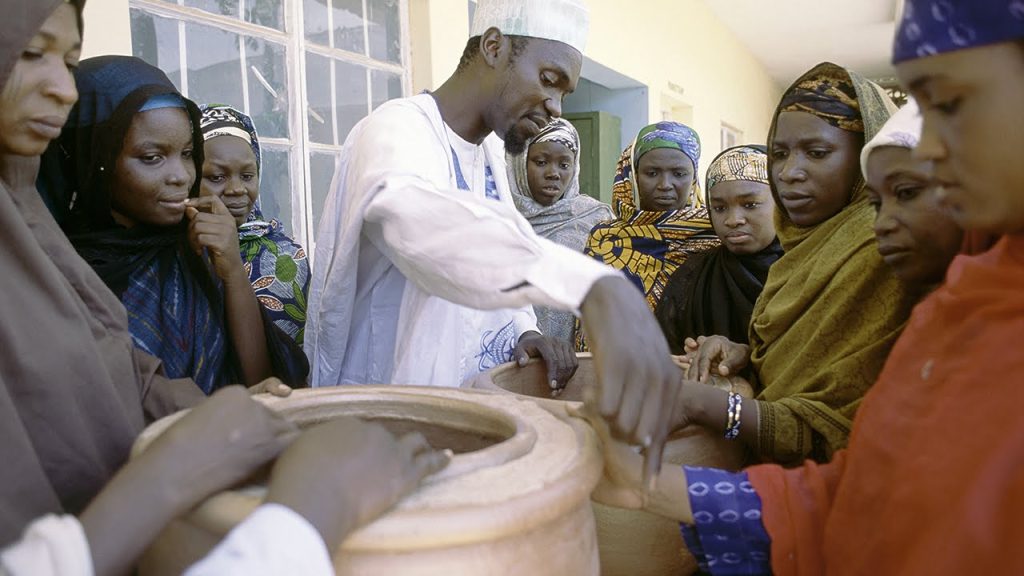
- Impact on Food Preservation:
- The Pot-in-Pot refrigerator has proven to be a practical and sustainable solution for rural communities, especially in regions where access to electricity and conventional refrigeration is limited.
- This invention has helped reduce food spoilage, extend the availability of fresh produce, and improve the economic conditions of farmers and communities.
- Recognition:
- Mohammed Bah Abba received recognition for his innovative and cost-effective solution. He was awarded the Rolex Award for Enterprise in 2000, which highlighted the positive impact of the Pot-in-Pot refrigerator on rural communities.
- Legacy:
- The Pot-in-Pot refrigerator continues to be used in various parts of Africa, providing a simple and efficient method for preserving perishable foods without the need for electricity.
Mohammed Bah Abba’s invention exemplifies how simple yet innovative solutions can address practical challenges faced by communities, especially in regions with limited resources. His contribution to sustainable and low-cost food preservation has had a positive impact on the lives of many people in rural areas.
Agbani Darego and Flora Nwapa: Remarkable Women
AGBANI DAREGO

Agbani Darego is a Nigerian model and beauty queen who made history by becoming the first native African to win the Miss World title. Here are some key points about Agbani Darego:
- Early Life:
- Agbani Darego was born on December 22, 1982, in Lagos, Nigeria.
- Miss Nigeria:
- In 2001, Darego won the title of Miss Nigeria at the age of 18. Her victory in the national beauty pageant earned her the right to represent Nigeria on the international stage.
- Miss World 2001:
- Agbani Darego made history on November 16, 2001, by winning the Miss World competition held in Sun City, South Africa. She became the first black African woman to be crowned Miss World.
- International Recognition:
- Darego’s win at Miss World brought her international recognition and made her a symbol of pride for Nigeria and Africa as a whole.
- Post-Pageant Career:
- Following her Miss World victory, Agbani Darego pursued a career in modeling. She became the face of various international brands and worked with renowned fashion designers and photographers.
- Fashion Industry:
- Darego has been involved in the fashion industry, both as a model and an entrepreneur. She launched her denim line, AD by Agbani Darego, in 2010.
- Education:
- Agbani Darego holds a Bachelor of Science degree in Computer Science and Mathematics from New York University.
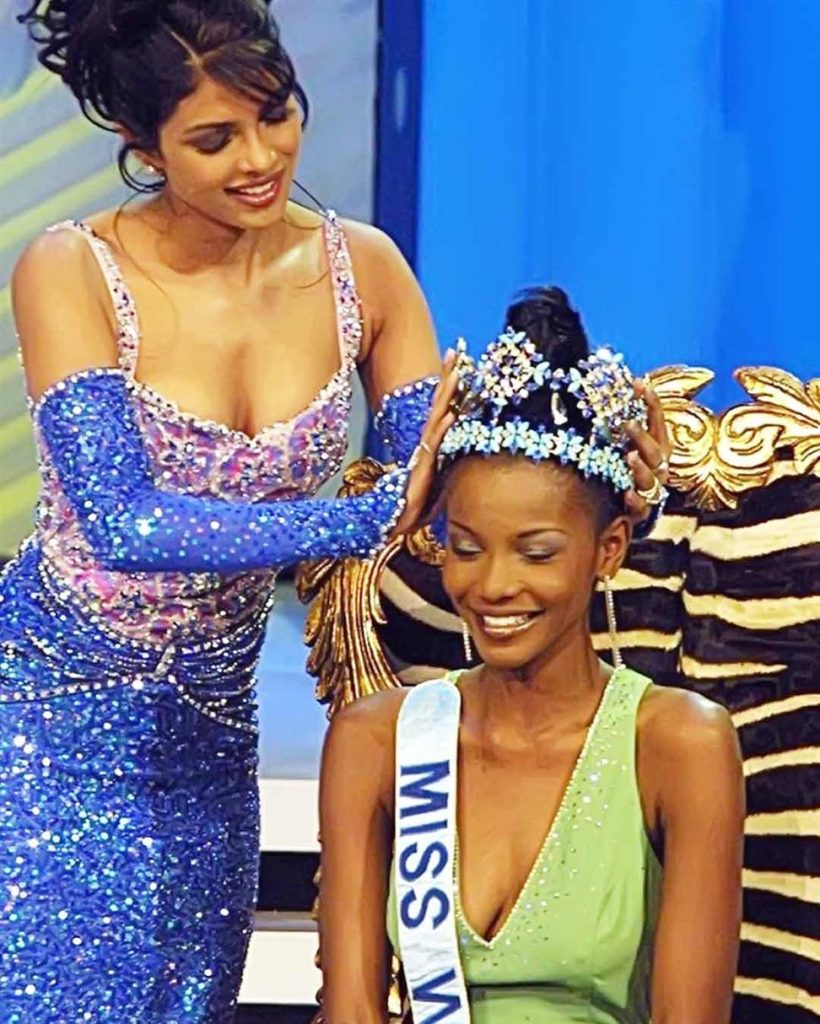
- Philanthropy:
- Darego has been involved in philanthropic activities, supporting causes related to education and healthcare in Nigeria.
- Public Figure:
- Agbani Darego remains a prominent figure in Nigeria and the global fashion scene. She continues to inspire aspiring models and beauty queens.
Agbani Darego’s historic win at the Miss World pageant marked a significant moment in the history of beauty pageants, highlighting the beauty, grace, and intelligence of African women on the global stage. Beyond her pageant success, Darego has built a successful career in the fashion industry and remains an influential figure in Nigeria.
Flora Nwapa – mother of modern African literature
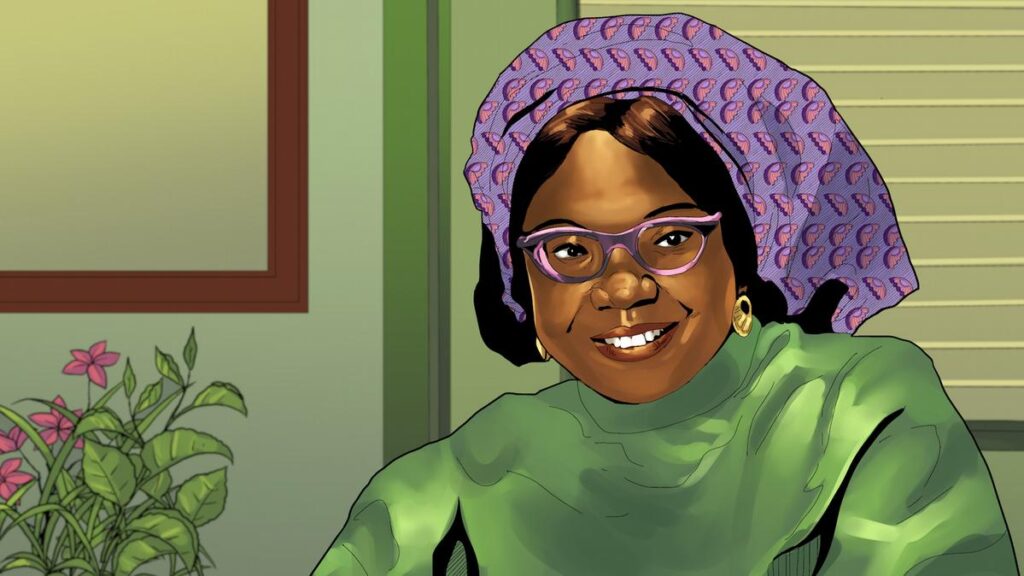
Flora Nwapa (1931–1993) was a Nigerian author, educator, and women’s rights activist who played a pioneering role in African literature. She is often recognized as the first African woman novelist to be published in English. Here are some key points about Flora Nwapa:
- Early Life and Education:
- Flora Nwapa was born on January 13, 1931, in Oguta, Nigeria.
- She attended primary and secondary schools in Nigeria and later studied at the University of Ibadan, where she earned a degree in English.
- Literary Career:
- Nwapa is best known for her novels that explore the experiences of African women, their roles in society, and the challenges they face. Her works are significant for their focus on women’s perspectives and the portrayal of Igbo society in Nigeria.
- Her debut novel, “Efuru” (1966), is considered a landmark in African literature. It tells the story of a woman named Efuru and addresses issues of gender, tradition, and societal expectations.
- Other Works:
- Nwapa’s other notable works include “Idu” (1970), “This is Lagos and Other Stories” (1971), and “Never Again” (1975).
- She wrote in English and used her novels to highlight the cultural richness and complexities of Nigerian society.
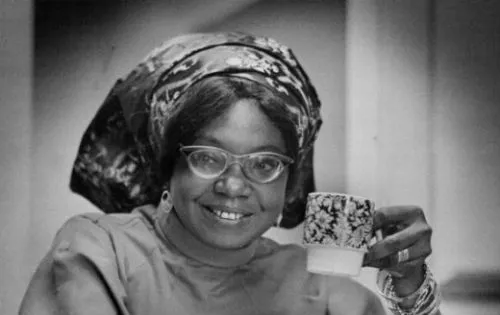
- Educational Contributions:
- Flora Nwapa was involved in education and held various positions, including working as an education officer and lecturer. She was dedicated to promoting education, especially for women, and advocated for the importance of women’s access to education.
- Women’s Rights Activism:
- Nwapa was a vocal advocate for women’s rights and empowerment. Her works often addressed issues related to women’s roles in society, their struggles, and the need for social change.
- Legacy:
- Flora Nwapa’s contributions to literature and women’s rights have left a lasting legacy. Her writing paved the way for other African women writers to explore and express their experiences in literature.
- She remains an important figure in the history of African literature, particularly for her role in promoting women’s voices and perspectives.
Flora Nwapa’s literary works and activism have had a significant impact on the representation of women in African literature. Her commitment to education and women’s rights has left a lasting imprint on Nigerian and African cultural and literary landscapes.
Dick Tiger: Africa’s Greatest Fighter

Dick Tiger, whose real name was Richard Ihetu, was a Nigerian professional boxer born on August 14, 1929, in Amaigbo, Nigeria. He gained international recognition during the 1950s and 1960s, making significant contributions to the sport of boxing. Here are some key points about Dick Tiger:
- Boxing Career:
- Dick Tiger was a two-weight world champion, excelling in both the middleweight and light heavyweight divisions.
- He turned professional in 1952 and went on to have a successful career, earning a reputation for his skill, toughness, and versatility in the ring.
- Middleweight Title:
- In 1962, Dick Tiger won the world middleweight title by defeating Gene Fullmer. He successfully defended the title against notable opponents like Joey Giardello.
- Light Heavyweight Title:
- Tiger later moved up to the light heavyweight division and captured the world title in that weight class as well. He defeated José Torres in 1966 to become the light heavyweight champion.
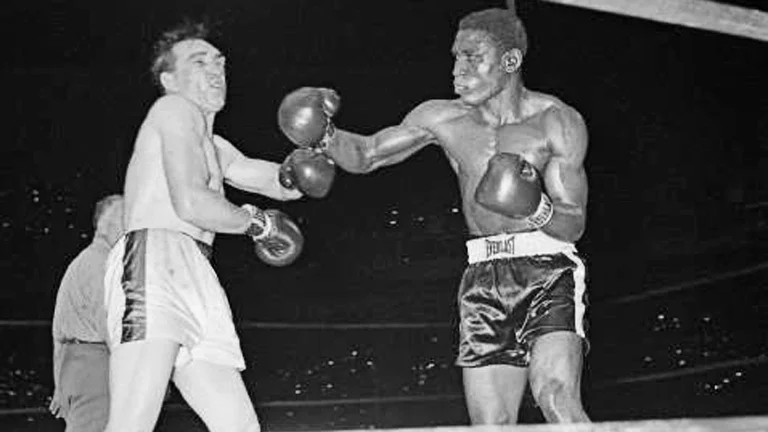
- Legacy:
- Dick Tiger is regarded as one of the greatest African boxers of all time. His achievements in winning titles in two weight classes were a rare feat at that time.
- He was known for his disciplined and strategic boxing style, and he earned respect for his sportsmanship both inside and outside the ring.
- International Recognition:
- Tiger’s success in the United States brought him international recognition, and he became a popular figure in the boxing world during the 1960s.
- Retirement:
- Dick Tiger retired from professional boxing in 1970. His contributions to the sport were significant, and he left a lasting impact on the boxing community.
- Hall of Fame Induction:
- Dick Tiger was posthumously inducted into the International Boxing Hall of Fame in 1991, recognizing his outstanding career and contributions to the sport.
Dick Tiger’s legacy endures as a pioneering African boxer who achieved success on the international stage and paved the way for future generations of African boxers. His skill, sportsmanship, and championship achievements have solidified his place in the history of boxing.
Wole Soyinka: Nigerian Nobel Laureate
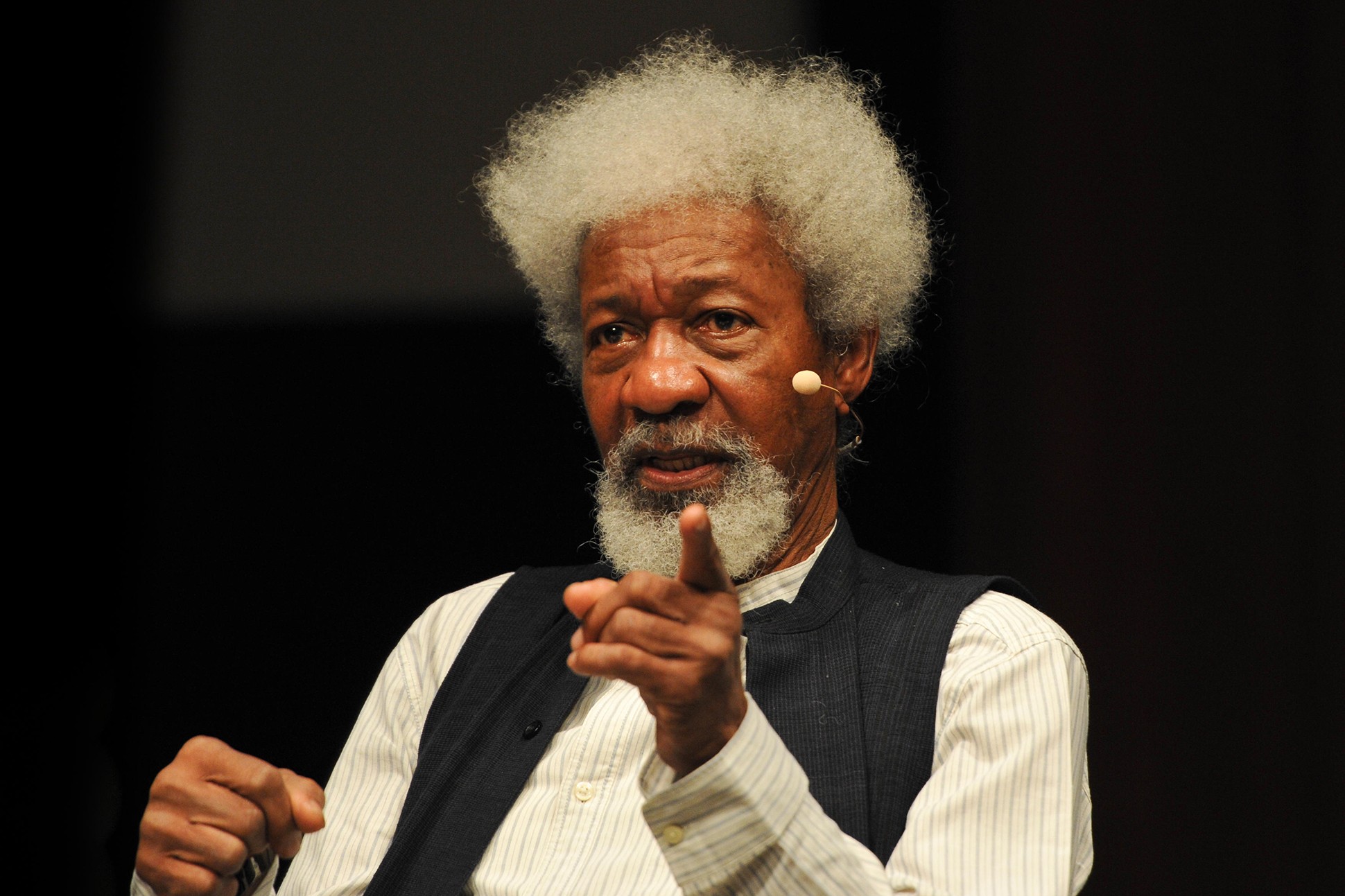
Wole Soyinka is a Nigerian playwright, poet, essayist, and critic who holds a prominent place in the literary and political history of Nigeria. Born on July 13, 1934, in Abeokuta, Nigeria, he became the first African laureate to be awarded the Nobel Prize in Literature in 1986. Soyinka’s contributions extend beyond literature, as he has been actively involved in political and social issues in Nigeria.
Key points in Wole Soyinka’s history and significance to Nigeria include:
- Literary Achievements:
- Soyinka is known for his rich body of work, including plays, poetry, essays, and novels. Some of his notable plays include “The Man Died: Prison Notes” (1972), “A Dance of the Forests” (1960), and “Death and the King’s Horseman” (1975).
- His writing often explores themes related to the cultural identity, political upheavals, and societal challenges faced by Nigeria and Africa as a whole.
- Nobel Prize in Literature:
- Wole Soyinka was awarded the Nobel Prize in Literature in 1986, making him the first African laureate. The Nobel Committee recognized him for his literary work that “in a wide cultural perspective and with poetic overtones fashions the drama of existence.”
- Political Activism:
- Soyinka has been an outspoken critic of political tyranny, corruption, and human rights abuses in Nigeria. He has been actively involved in various political movements and has been arrested multiple times for his opposition to oppressive regimes.
- During the Nigerian Civil War (1967-1970), Soyinka was arrested and imprisoned for trying to negotiate peace between warring factions.
- Cultural Contributions:
- As a cultural icon, Soyinka has played a crucial role in preserving and promoting Nigerian and African culture. His works often draw on Yoruba mythology and traditions.
- He has been involved in the establishment of cultural institutions, such as the Village Museum in Ibadan, Nigeria.
- Academic Career:
- Soyinka has held academic positions at various universities, both in Nigeria and internationally. He has been a professor, lecturer, and scholar, contributing to the academic development of literature and the arts.
- International Influence:
- Wole Soyinka’s influence extends beyond Nigeria. His works are studied and appreciated worldwide, contributing to a global understanding of African literature and culture.
- Legacy:
- Soyinka’s legacy is marked by his fearless pursuit of justice, intellectual rigor, and commitment to the arts. He remains an inspiration for writers, activists, and scholars across the globe.
Wole Soyinka’s impact on Nigeria and the world is multifaceted, encompassing literature, politics, culture, and academia. His enduring commitment to the pursuit of justice and the celebration of African culture has solidified his place as a significant figure in Nigeria’s history.
Related Reading Key Figures and Events in Nigeria’s Independence: The Aba Women’s Riot, Funmilayo Ransome-Kuti, Anthony Enahoro, and Herbert Macaulay
